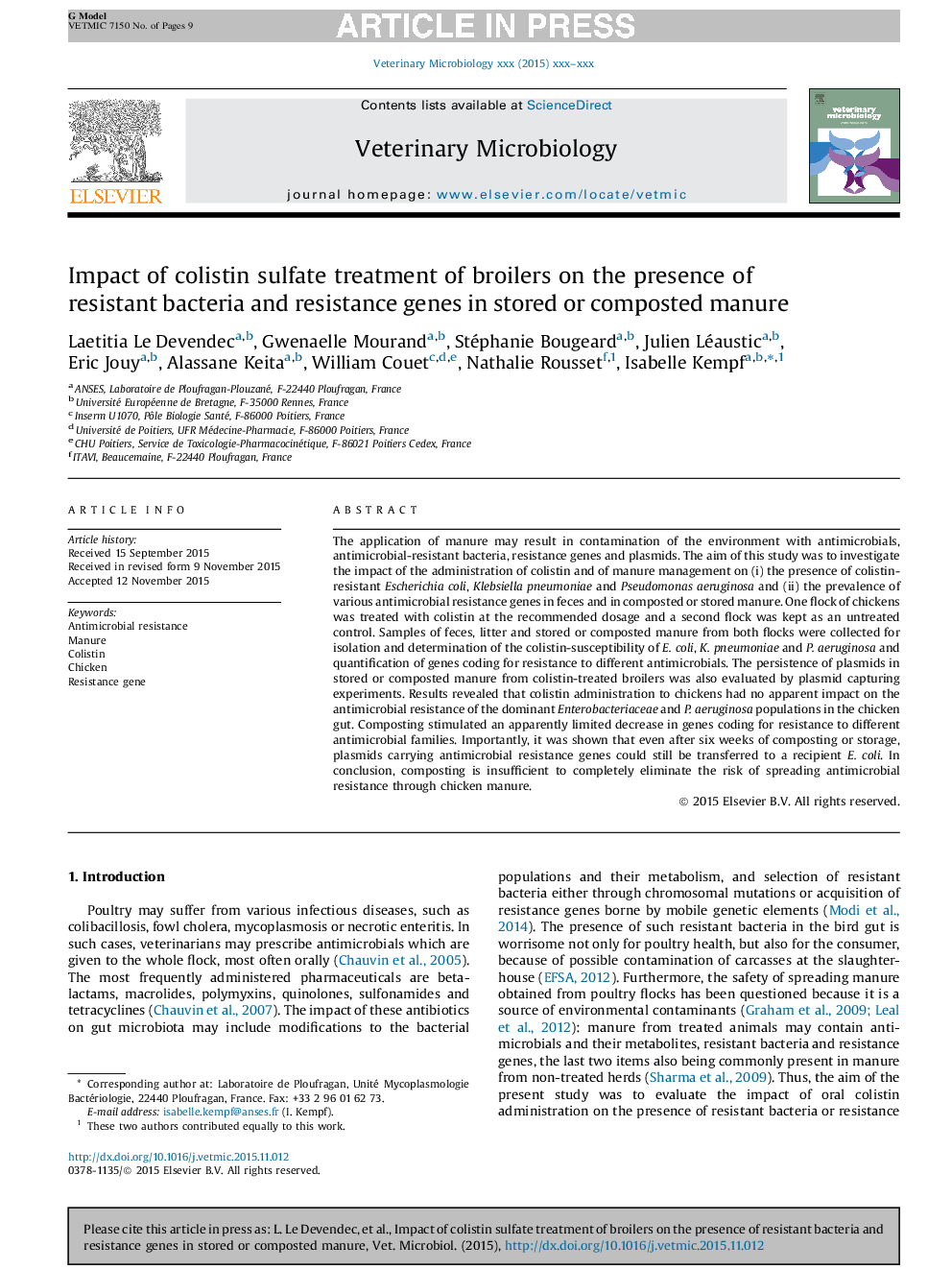| Article ID | Journal | Published Year | Pages | File Type |
|---|---|---|---|---|
| 5545444 | Veterinary Microbiology | 2016 | 9 Pages |
Abstract
The application of manure may result in contamination of the environment with antimicrobials, antimicrobial-resistant bacteria, resistance genes and plasmids. The aim of this study was to investigate the impact of the administration of colistin and of manure management on (i) the presence of colistin-resistant Escherichia coli, Klebsiella pneumoniae and Pseudomonas aeruginosa and (ii) the prevalence of various antimicrobial resistance genes in feces and in composted or stored manure. One flock of chickens was treated with colistin at the recommended dosage and a second flock was kept as an untreated control. Samples of feces, litter and stored or composted manure from both flocks were collected for isolation and determination of the colistin-susceptibility of E. coli, K. pneumoniae and P. aeruginosa and quantification of genes coding for resistance to different antimicrobials. The persistence of plasmids in stored or composted manure from colistin-treated broilers was also evaluated by plasmid capturing experiments. Results revealed that colistin administration to chickens had no apparent impact on the antimicrobial resistance of the dominant Enterobacteriaceae and P. aeruginosa populations in the chicken gut. Composting stimulated an apparently limited decrease in genes coding for resistance to different antimicrobial families. Importantly, it was shown that even after six weeks of composting or storage, plasmids carrying antimicrobial resistance genes could still be transferred to a recipient E. coli. In conclusion, composting is insufficient to completely eliminate the risk of spreading antimicrobial resistance through chicken manure.
Related Topics
Life Sciences
Agricultural and Biological Sciences
Animal Science and Zoology
Authors
Laetitia Le Devendec, Gwenaelle Mourand, Stéphanie Bougeard, Julien Léaustic, Eric Jouy, Alassane Keita, William Couet, Nathalie Rousset, Isabelle Kempf,
